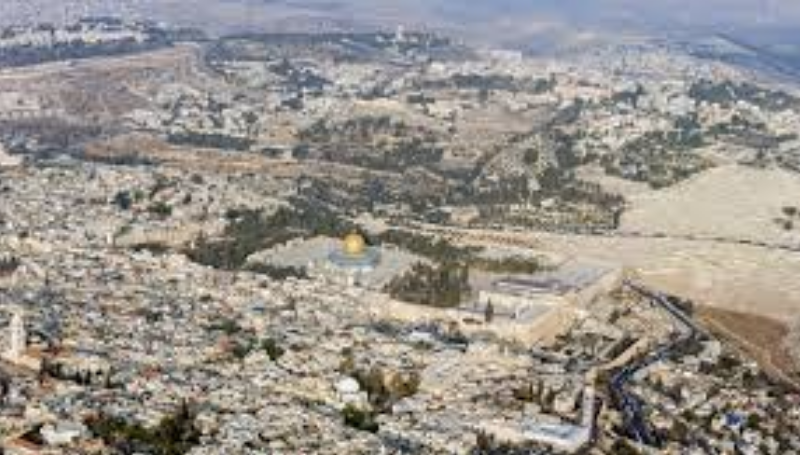Ariel Sophia Bardi
New Lines Magazine, Nov. 11, 2022
“Altneuland” was one of a spate of turn-of-the-century texts that sought to answer what Jewish autonomy would look and feel like.”
Exactly a century ago, a cantankerous German aristocrat and a lovelorn Jewish lawyer from Vienna stepped off a private yacht onto the port of Jaffa in Palestine.
They did a double take.
“There’s been a miracle here,” cried Friedrich, the lawyer. Thousands of white coastal mansions — reminiscent of the French and Italian Rivieras — twinkled back at them. Trains glided noiselessly above their heads on raised tracks. Electric lamps hung like glass fruits from palm trees. In this strange, futuristic land, tourists disembarked off nonstop trains from Paris. The ancient desert city of Jericho housed a five-star health resort. In Jerusalem, the First Temple — destroyed by Babylonian forces back in 586 BCE — stood rebuilt on the Temple Mount. Further up the coast gleamed the minarets of Acre.
The year was 1922 on paper, but Theodor Herzl — the Budapest-born journalist from Vienna who founded the World Zionist Organization — wrote this scene at the turn of the century for a novel published in 1902. He died two years later at the age of 44. The book — “Altneuland,” or “Old-New Land” — fleshed out the writer’s political ideas with fiction. Herzl imagined a Jewish-led utopia as high-tech and cutting-edge, yet deeply indebted to ancient traditions and spiritual practices — somewhere between a proto-Israeli state and a Jewish Wakanda. Except this wasn’t a state, it was a social cooperative. In the book, land is leased from Ottoman sultans. Dividends are reinvested, creating a self-sustaining commonwealth — officially, a collectively owned stock trading cooperation dubbed the “New Society.” ...SOURCE


